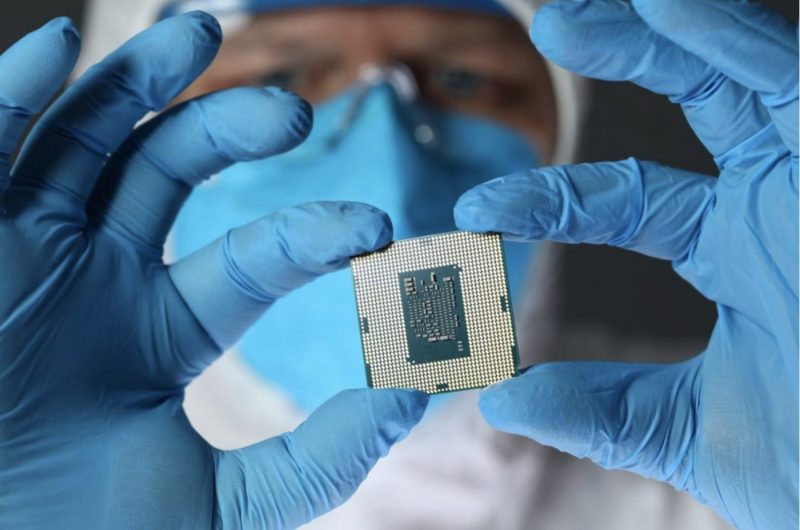(ATF) China’s largest chipmaker, Semiconductor Manufacturing International Corporation (SMIC), has been handed $2.45 billion of state-backed capital for a new joint venture wafer plant in Beijing.
The investment comes alongside a further $3 billion yuan (US$460 million) of capital injection into an existing joint venture in the coastal city Ningbo, as the US adds the firm to a blacklist that prevents US investors from buying its securities.
The new Chinese capital investment comes as it is also facing a civil lawsuit by US investors seeking to recover their damages.
The claimants say SMIC made false or misleading statements and failed to disclose its risk of facing US restrictions and the risk that it would be difficult for its suppliers to obtain export licenses. SMIC said it intends to defend the lawsuit vigorously.
The US Department of Defense added SMIC, and three other Chinese companies to a blacklist of alleged Chinese military companies on Thursday, bringing the number of firms affected to 35.
No penalties
While the list did not initially trigger any penalties, a recent executive order by President Donald Trump will prevent US investors from buying the firms’ securities.
SMIC said being added to the list has “no major impact on the company’s operation” and it continued “to engage constructively and openly with the US Government”.
It reiterated that its products and services were solely for civilian and commercial use. “The company has no relationship with the Chinese military and does not manufacture for any military end-users or end-uses,” it said.
And it has also been revealed that SMIC’s co-chief executive Liang Mong-song was reported to have resigned, following the appointment of former Taiwan Semiconductor Manufacturing Company (TSMC) veteran Chiang Shang-yi as the company’s new vice-chairman and executive director.
Semiconductor industry analyst Mark Li, of Bernstein Research, described Liang’s pending resignation as a “setback” for the company’s future technology progress.
Chiang was once an independent director at SMIC until he left SMIC in June last year and joined Wuhan Hongxin Semiconductor Manufacturing (HSMC) as chief executive. The $20 billion HSMC project, once a star on Wuhan government’s strategic project list, was tangled in fiasco and has reportedly been taken over by the local government.
The Hong Kong and Shanghai dual-listed company said its new factory in Beijing will focus on the production of 28 nanometer and above integrated circuits. The first phase will cost $7.6 billion.
Wafer production
Once up and running, the plant will produce 12-inch wafers at a rate of 100,000 per month. The second phase of the project will get under way depending on customer demand, it said.
Setting up the wafer plant will help SMIC expand its production scale, reduce its costs of production, and meet the growing market needs, the company added.
Ouyang Shihua and Tang Hongyi, analysts with Guosen Securities, said: “As economies recover, companies in downstream are stocking up their inventories, and as a result the mid-stream wafer factories of SMIC, TSMC and United Microelectronics Corporation (UMC) are all loaded to full capacity.”
On the same day, SMIC announced that its operation in Ningbo, in eastern Zhejiang province, received additional capital from three Chinese investors totalling $460 million.
Ningbo Yongxin Integrated Circuit Equity Investment, Shanghai Hengyuan Investment Management Partnership and Ningbo Deyue Gaopeng Equity Investment Partnership agreed to each make capital contribution of $153 million and will become new shareholders, each owning 19.6%, it said.
SMIC’s shareholding will be diluted from 38.6% to 15.9% after the capital increase.
Shares of SMIC on Shanghai’s STAR Market, where it listed this year, fell by nearly 10% after trading opened on Wednesday. Trading was halted for the company’s shares in Hong Kong, and dipped 5% at the widest after trading resumed in the afternoon.
Despite the US pressure, CITIC Securities remained positive about SMIC’s mid to long-term growth, and said the joint venture of SMIC’s new wafer plant in Beijing will help the company expand its capacity and reduce financial pressure.
with reporting by Reuters
























